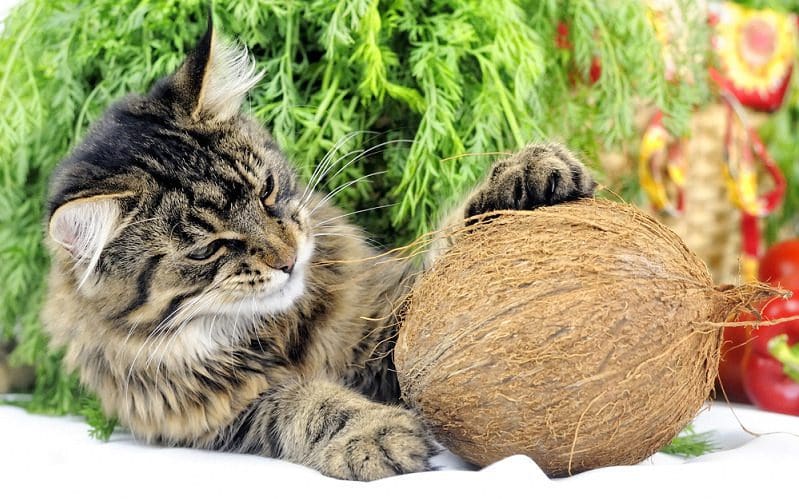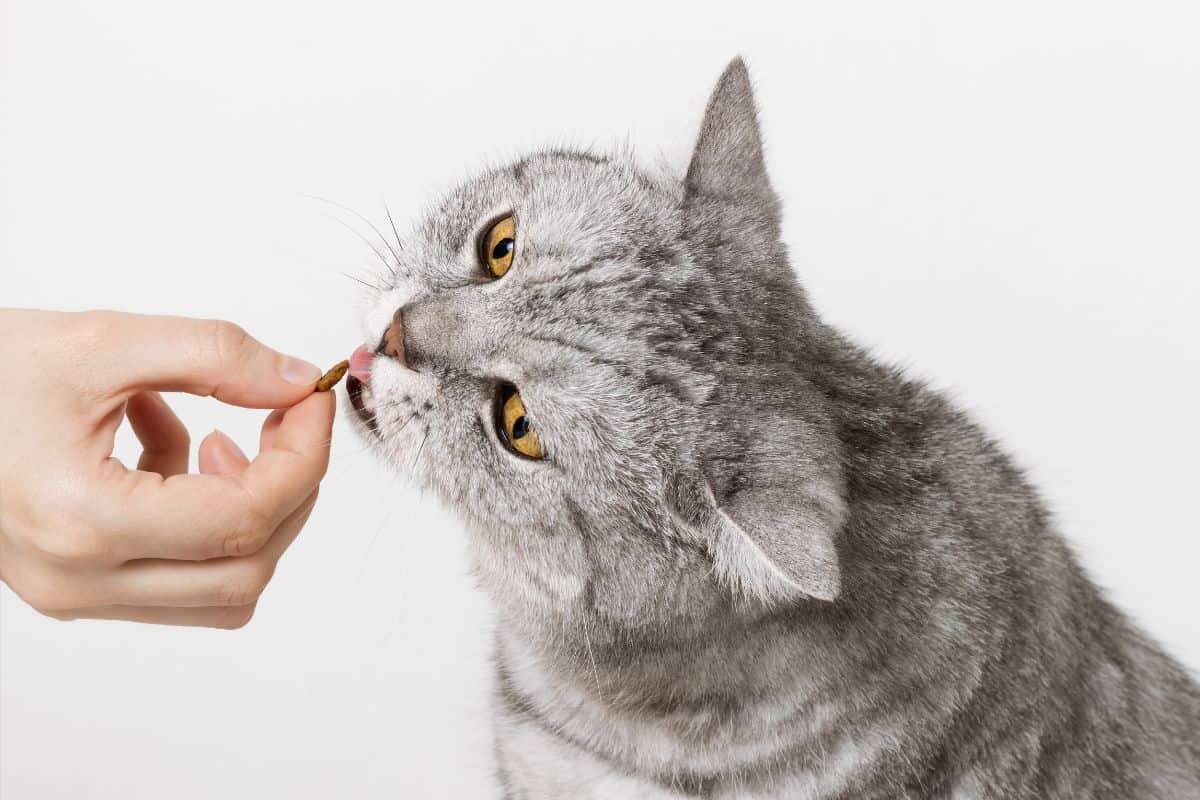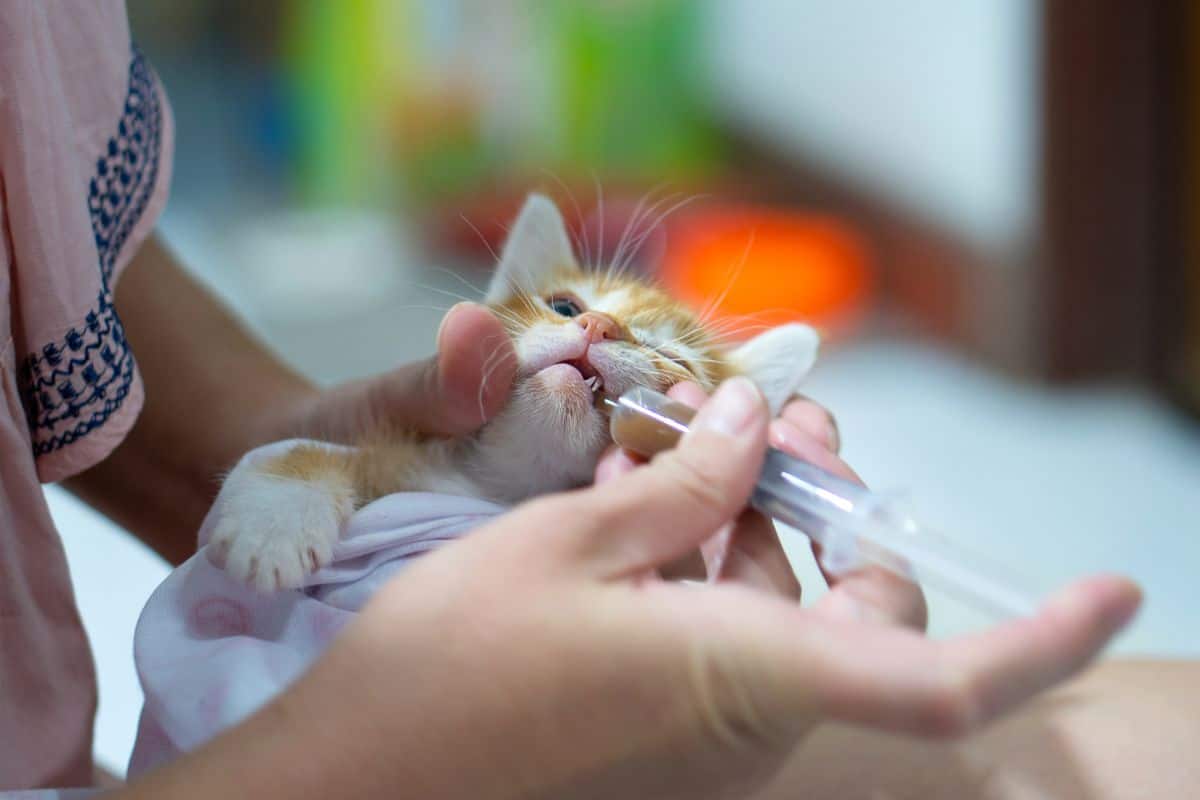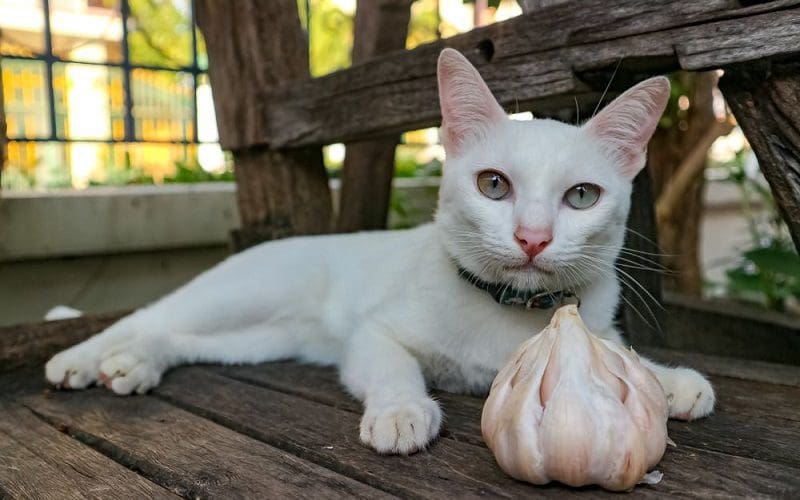Last Updated: 11 months ago
Deworming cats can be difficult, but there are some at-home solutions that you can make use of.
From using turmeric to carrots, these solutions have the potential to work well.
However, it should be noted that, since every cat is different, you should always consult your vet before trying any of these. There are various strategies that you can use, but every cat will react differently.
With that being said, these at-home remedies for worms in cats can be great for preventing parasites from making your cat their new home.
So, if you’re interested in learning about some natural home remedies for deworming your cat, just keep reading!
Should You Deworm Cats Yourself?

You can deworm your cat yourself, but you should always consult with your vet before doing so. Every worm situation will be different, and your cat may react to the treatment.
Get as much advice as possible, and always listen to what the vet has to say – they are pros in the field for a reason, after all!
If you’re given the green light, then you can use the methods below to deworm your cat. Please bear in mind that these methods are not always 100% effective.
If you struggle with this issue, the best thing to do would likely stick to specialized medications.
Some medications can have unpleasant side effects, and this is always something to look out for.
How To Get Rid Of Worms In Cats Naturally
#1 Coconut

Coconut is a great vermifuge – in other words, they get rid of worms!
This is one of the easiest at-home deworming methods you can make use of, because cats will probably enjoy it!
All you need to do is buy some desiccated coconut and sprinkle some over your cat’s wet food.
For large cats, one tablespoon should be enough with every meal. Medium-sized cats should only have two teaspoons, and small cats just one teaspoon.
Give your pets this every day, and you should see an improvement in no time.
#2 Pumpkin Seeds

Pumpkin seeds are full of cucurbitacin – an amino acid that is great for deworming.
It works by making the worms in the cat’s gut immobile, which then allows them to move until they are passed in the cat’s feces.
You can give your cat pumpkin seeds in a number of ways – they can be given whole, powdered, or crushed. It all depends on what is available to you, and which option your cat would prefer.
If whole, they may be a nice treat for your pet as is. If you choose to powder or crush the seeds, they can easily be added to your cat’s wet food.
For every 10 lbs your cat weighs, they should receive 1 teaspoon of raw pumpkin seeds. They should be given this twice every day.
Giving your cat pumpkin seeds regularly will ensure that worms are paralyzed when they enter the system and get flushed out quickly.
Be sure to keep feeding your cat these pumpkin seeds even after the worms have been removed from the body. They will often lay eggs, which will quickly hatch.
By keeping the worms and eggs paralyzed and unable to attach to the stomach lining, the cat will poop them out in no time.
#3 Chamomile

Chamomile has proven useful in both eliminating and preventing whipworms and roundworms.
This tea is often used to treat digestive issues in a number of pets, and may even calm the digestive tract. Its antiparasitic properties have made it an incredibly useful tool all over the world.
This tea is even given to babies to help reduce colic! For treating worms in cats, you should always speak to the vet before going ahead.
This is because dosage is important, and your vet can help you work out the correct amount. Generally, you can expect to give your cat one teaspoon of chamomile tea for every 10lbs.
To make it, you can use either chamomile from a teabag, or use chamomile herb.
Simply boil it and allow it to steep for a few minutes before getting rid of any chunks and giving it to your cat. Some cats may not enjoy the taste of this.
If this is the case, you can try adding the chamomile tea to some water to dilute it, or add a teaspoon to their wet food.
In the case of kittens, you can easily feed newborns chamomile by adding ⅓ of a teaspoon to their bottled formula twice a day.
#4 Carrots

Who would have thought that carrots can help your cat get rid of worms? These vegetables contain a lot of vitamin A and are great natural dewormers.
For this to work, however, carrots should be coarsely chopped so that they can scrape the walls of the gut and stomach, getting rid of worms in the process.
It’s important to note that you should be careful when feeding your cat non-meat products. These animals are obligate carnivores, so they need little to no vegetable matter in their diets.
As such, while they can eat things like carrots, they are not a great nutritional benefit to them.
Never feed your cat too much vegetable matter, or they won’t be hungry enough for the food that actually counts as nutritional for them.
Carrots are perfectly safe for digestion, but should always be limited, even when used as a treatment for worms.
#5 Apple Cider Vinegar

Apple cider vinegar is another great at-home option to treat your cat’s worms. This ingredient has been used for a variety of medical issues over the years, and now to treat worms in cats!
This product works by increasing the alkaline levels in the intestines of your cat.
The change is not suitable for parasites, and they are no longer able to thrive in their location. When this happens, they will be passed as waste.
To give your cat apple cider vinegar, all you need to do is add between ¼ and 1 teaspoon of the liquid to your cat’s water.
Ensure that the apple cider vinegar is raw and organic so that there are no unnecessary ingredients in it. Add this to your cat’s water every day, and you will soon start to see improvements.
You can expect your cat to experience a number of health benefits from this ingredient, but also an improvement in their coat.
There are plenty of benefits to adding small doses of apple cider vinegar to your cat’s diet, so why not try it?
#6 Turmeric

Turmeric has long been used in both cooking and medicine, and is still popular now!
This spice is thought to have incredible qualities, such as anti-cancer, antiviral, antioxidant, and many more.
It can be used to boost the general health of your pets as well as yourself! There are components in turmeric that make it great for removing worms and helping with inflammation.
It could also help repair damage to the intestines, so your cat’s gut health will be better than ever.
To use turmeric to treat your cat’s worms, simply add small amounts of the spice into your cat’s wet food.
Be sure to mix it in thoroughly and make sure your cat is hungry!
You may notice that your cat’s discomfort is alleviated shortly after eating this turmeric.
Your cat might also have some orange staining around their mouth for a little while if they’re a messy eater, too!
Can You Use Coconut Oil Instead Of Coconut To Deworm Cats?

We mentioned that coconut is great for helping to get rid of worms in cats. However, you may now be wondering if coconut oil can get the same results.
The answer? Yes! Coconut oil is a great option for deworming cats, and there are plenty of advantages if it gets used.
There’s a good chance that your cat will prefer this over a number of other methods, especially a pill. You can simply pour a small amount of coconut oil onto your cat’s wet food and mix it in.
This will add some extra flavor while still doing that it needs to do. Getting your cat to ingest coconut oil will probably be pretty easy, so that’s already something to look forward to.
This product can be used for both cats and dogs, and has a load of great health benefits when taken. One of the best things about coconut oil is the fact that it has natural antibacterial properties.
Not only that, but it has strong antiparasitic properties, too, so those worms will be gone in no time. With that being said, there are some risks to be aware of when it comes to coconut oil.
Some cats are actually allergic to it (and may be allergic to desiccated coconut, too). It is not recommended for cats with some medical issues to have coconut oil as it could make things worse.
Additionally, giving your cat too much coconut oil can result in your cat getting an upset stomach and having diarrhea. No one wants to deal with that.
Like with all the previously mentioned home remedies, you should always consult your veterinarian before feeding coconut oil to your cat.
They will need to ensure that coconut oil is the right option for your particular cat and their health issues.
How To Use Coconut Oil For Deworming
There’s only really one simple way to give your cat coconut oil to deal with their worms.
The oil has to be in liquid form and either added to your cat’s food or given to them straight. Tablets aren’t an option with these, but that isn’t an issue.
The majority of cats will love the taste of coconut oil, so getting them to eat it won’t be an issue!
You can melt the oil on a teaspoon and allow them to lick it off, or drizzle some onto their food and mix it in.
The amount of coconut oil you feed your cat will depend on how big they are, but remember not to give them too much unless you want to deal with an upset stomach and diarrhea!
Consult your local vet before doing anything with coconut oil.
Is Garlic A Good Option For Treating Tapeworms In Cats?

Garlic should not be used to treat worms in cats. There has been no evidence to suggest that it is an effective treatment as a means to get rid of worms.
It may work to inhibit egg and larvae production, but it is not very useful beyond that. More importantly, garlic and anything else in the Allium family, is poisonous to cats and dogs.
As such, it should never be given to them, even in small amounts for their own safety. A tapeworm has numerous segments that contain eggs.
These segments are passed in feces when they mature, and can often be seen in the hair around the cat’s anus. They can also be seen on the bed of a cat, and in the feces itself.
You can identify these as they will look like small grains of rice. In order for a tapeworm to find a host, it first needs to be ingested by an intermediate host. These can be things like mice or rats.
When the intermediate host is then eaten by a cat, the cat ingests the tapeworm and the parasite lives inside it. It is a cycle that doesn’t end unless the tapeworms are killed for good.
Once again, garlic is not a suitable option for dealing with tapeworms in cats or dogs. This is because garlic is poisonous to these animals and ingestion can result in hemolytic anemia.
Is It Safe To Use Essential Oils For Deworming Cats?

Yes! Essential oils can be used to not only deworm cats, but also prevent and repel possible future infections.
This primarily works by the essential oils repelling things like fleas and ticks, which are known to carry tapeworms and inject animals with them.
Using the correct essential oils can lead to fewer parasites staying on your cat, therefore preventing further tapeworm infections.
You can do this by mixing in a few drops of essential oils in your regular cat shampoo. Alternatively, you can massage some essential oils directly into your cat’s skin to prevent parasites.
In either case, around five drops should be enough to repel parasites. When applying essential oils, be careful not to apply it to any damaged skin or wounds.
Before doing this, you should always do some research on which essential oils are suitable to use. Some oils are toxic to cats and other pets, and can result in horrible reactions or worse.
Use essential oils that are proven to be safe, and ensure that your cat is not allergic to the products, either.
Frequently Asked Questions
IS TURMERIC AN EFFECTIVE METHOD OF TREATING WORMS IN CATS?
Turmeric is a great way to treat tapeworms in cats and boost their general health. This spice has amazing anti-inflammatory properties, and has numerous benefits (some of which we covered earlier).
It will help keep your cat healthier than ever, including their gut. Moreover, turmeric is perfectly safe, so you can use it with confidence. Because of the various health benefits that turmeric offers.
It is seen as one of the best home remedies for worms in cats. As such, it is the one we would recommend the most, along with pumpkin seeds.
SHOULD YOU USE HOME REMEDIES OVER ALLOPATHY?
Definitely not. You should always go to your local veterinarian for proper advice on the wellbeing of your pets.
Every animal is unique, and without consultation, you could worsen your cat’s condition without meaning to. Visit a vet and get their opinion before taking any action.
DO HOME REMEDIES PROVIDE 100% RESULTS?
Unfortunately not. Home remedies, while they often work, do not have the success rate of medications that were formed for these issues.
They may not always work, and some may not be suitable for your particular animal. As such, you should always talk to your vet before taking action to find out what the best thing you can do is.
CAN HOME REMEDIES HAVE ANY SIDE EFFECTS?
Yes! Home remedies for worm treatments can have a number of side effects, depending on the method used and your cat. Once again, every cat is unique and will pose its own challenges.
There are coconut oil allergies, and various other allergies and issues to think about them choosing home remedies. However, medications can also have side effects, so it is up to you to decide which you find best.
Final Thoughts
So, you can treat your cat’s worms by using things like coconut, pumpkin seeds, chamomile, carrots, apple cider vinegar, or turmeric!
While these options might not always work as well as specialized medications, they do work pretty well.
However, before choosing one of the above methods, you should always speak to your local vet and get their input.
They can help you with dosage, or recommend not to do it altogether. Your cat’s personal health and history must always be the deciding factor in these conversations.
